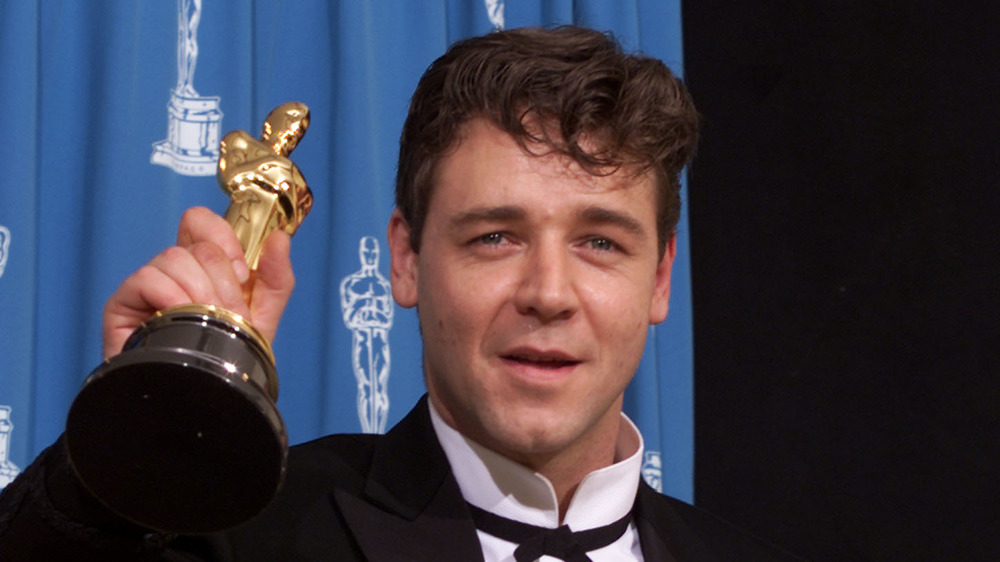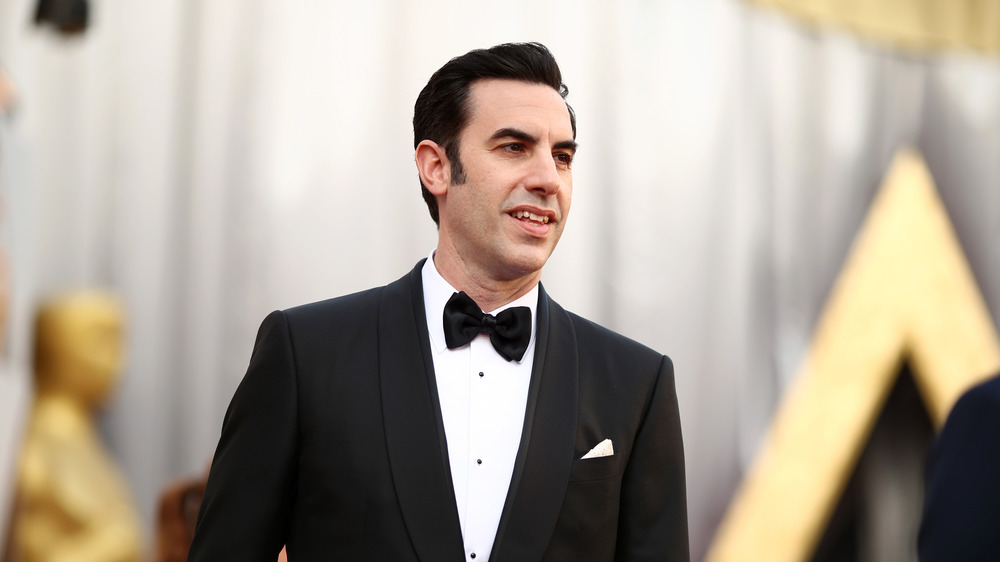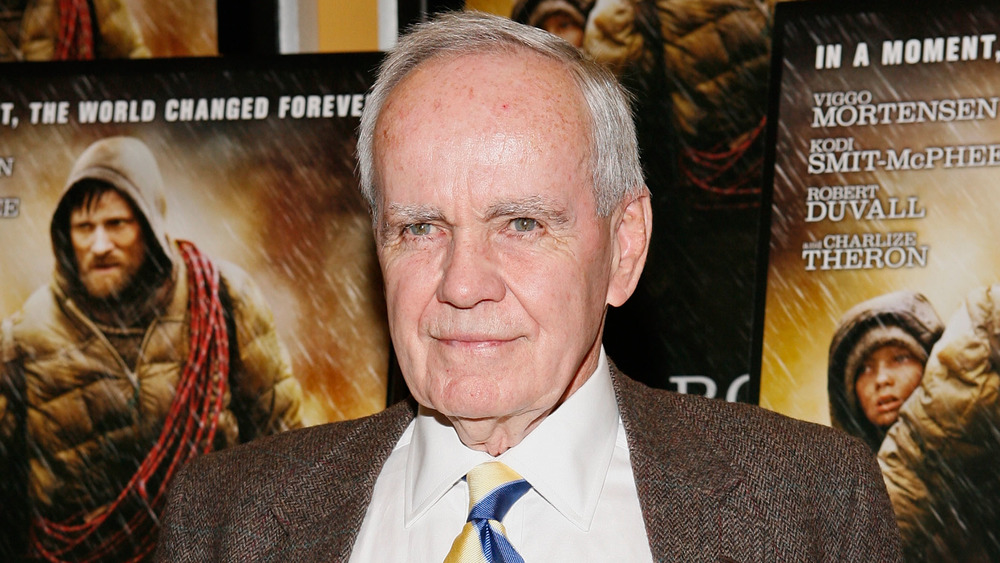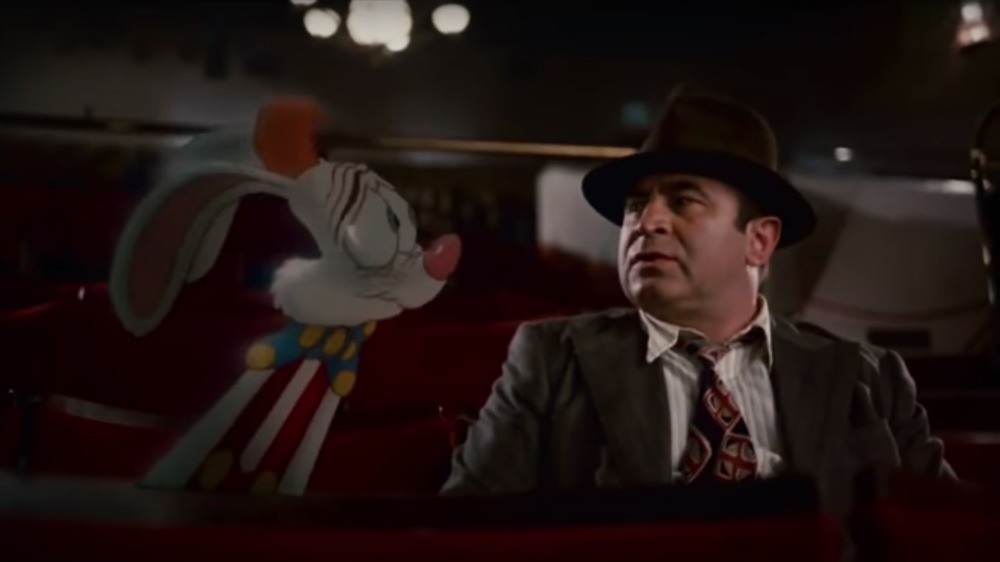Idiotic Mistakes That Got Movies Canceled
Getting a movie made is no easy feat. Just ask director Terry Gilliam. After rising to prominence with the British comedy troupe Monty Python in the late 1960s, Gilliam played a guiding role in such bona fide comedy classics as Monty Python and the Holy Grail (1975) and Monty Python's Life of Brian (1979) before heading off on his own to make some of Hollywood's most experimental and eye-popping movies. That hasn't stopped him from finding himself in development hell.
Gilliam had long harbored a burning desire to make a movie based on Miguel de Cervantes' Don Quixote. Beginning in 1989, it took Gilliam nearly a decade to secure financing, after which the project was beset by illness, drop-outs, flooding on set, and the cancellation of shoots, making it one of the most notoriously troubled projects in modern cinema history. "Never in 22 years of being in this business have I seen such a sum of bad luck," said Gilliam's cinematographer back in 2000, according to Dazed. The movie, The Man Who Killed Don Quixote, was eventually released in 2018 to mixed reviews. But regardless of how the movie was received, Gilliam must be commended for beating adversity and seeing his dream project through.
It's not always bad luck that sinks a production, however. Bad decision-making and human error also play a major part. Here are a few notorious movie-killing blunders.
Russell Crowe's recommendation floored Gladiator 2
The original Gladiator, released in 2000 and one of the biggest hits of the year, made Russell Crowe into a household name. His portrayal of Maximus Decimus Meridius, a soldier in Ancient Rome betrayed by his corrupt commanders and forced to battle in the coliseum as a gladiator, won him an Oscar for Best Actor at the 73rd Academy Awards — one of five the movie clocked up that night, according to ABC News.
A sequel was originally signaled back in 2001, with the original plan being to make a movie that didn't feature Crowe (whose character — spoiler alert! — dies at the end of the first film) or indeed any gladiators, according to the BBC. But Crowe, keen to return to the role that made him a star, decided to commission a new script, roping in fellow Australian Nick Cave of the band The Bad Seeds to pen a script that would employ Ancient Roman beliefs to justify the return of Maximus.
Cave, who is also a novelist and screenwriter, turned in a script that was totally nuts, with a central plot concerning the resurrected Maximus trudging into the underworld and doing battle with a God. Crowe's reaction? "I don't like it, mate." And thus the project was shelved. Cave later claimed, "I enjoyed writing it very much because I knew on every level that it was never going to get made," according to Den of Geek.
Losing Sacha Baron Cohen stalled the Queen movie
Sacha Baron Cohen was on a hot streak, thanks to the runaway success of Borat (2006) and Brüno (2009). In 2010 it was announced that Cohen had been lined up to play Freddie Mercury in a biopic of the Queen frontman. Fans thought it was a match made in heaven: One of the most talented character actors since Peter Sellers had just signed up to play one of the most charismatic figures in rock history. Mercury and Cohen even bore a striking resemblance to one another. What could possibly go wrong? The answer lies in the decision to involve the surviving members of Queen — brilliant musicians, but not particularly known for their cinematic acumen — in the creative decision-making for the movie.
According to Vulture, Cohen believed that he had signed on to an edgy retelling of Mercury's life. Mercury's former bandmates, however, had other ideas. In an interview with Howard Stern (posted on YouTube), Cohen recalled how the rest of Queen thought the story would be about the history of the band, with Mercury's death occurring in the middle of the movie. "Not one person is going to see a movie where the lead character dies from AIDS and then you carry on to see the band," Cohen said, and quit the project.
After languishing for half a decade, the project was revived with Rami Malek and released as Bohemian Rhapsody in 2018, with Mercury the focus.
Blood Meridian was canceled for being 'too violent'
The heavyweight American novelist Cormac McCarthy (above) has seen his works become highly commercially and critically successful movies. The Cohen Brothers turned out a multi-Oscar winning adaptation of his modern western No Country For Old Men in 2007, while his harrowing post-apocalyptic tale The Road was given the big-screen treatment in 2009, with a breathtaking performance by Viggo Mortensen.
Meanwhile, McCarthy's 1985 magnum opus Blood Meridian, which historian William Dalrymple has cited as his choice for the Great American Novel (via Reader's Digest), has proven to be a far tougher nut to crack as movie source material. The story of Blood Meridian's proposed Hollywood adaptation is one of a string of high profile sign-ons, including Tommy Lee Jones in the '90s, Ridley Scott in the mid-'00s, and, most recently, James Franco, who reportedly tried to enlist Russell Crowe to the production, according to Variety. Unfortunately for McCarthy fans, the novel's bleak and unrelenting violence has proven a drawback, and production has repeatedly stalled. But really, since when has violence been a turn-off for movie-goers?
Many have written off the novel as unfilmable. In a 2009 interview with the Wall Street Journal, however, McCarthy still claimed that a Blood Meridian movie was not an impossibility, claiming it would be "very difficult to do and would require someone with a bountiful imagination" and a great deal of artistic courage. "But the payoff could be extraordinary."
Roger Rabbit 2's cartoon Nazis
For those of us who remember seeing it as children, Who Framed Roger Rabbit? will always hold a special place in our collective consciousness. The 1988 comedy, directed by Robert Zemeckis and starring Bob Hoskins as a hard boiled detective in a world populated by cartoon characters from the golden age of animation, boasted a stellar script, snappy dialogue, and served as a touchstone for a host of 20th century cultural references that made a generation of movie-goers reconnect with the classics of the past. The movie also bagged an impressive four Academy Awards. But to the surprise of many, neither Roger Rabbit nor his bombshell wife Jessica have ever returned for a full-length sequel. Why?
According to Animation World Network, all the way back in the early '90s, scriptwriter Nat Mauldin was commissioned to write a Roger Rabbit prequel. Mauldin's script was set during World War II, and featured a plot in which Jessica Rabbit inadvertently collaborates with Nazi spies. Thematically, the script was a huge mistake. The producer Steven Spielberg, who had been so instrumental in convincing Disney to allow their characters to appear in the movie, rejected the script, reportedly because its cartoonish portrayal of the Nazis didn't sit well with his other major release of the period, 1993's Schindler's List.
Animation has since moved on, and screen tests for potential sequels have failed to capture the spirit of the original. Still, rumors of Roger Rabbit 2 continue to circulate among fans.




